Explore Our Network of Sites
Search
By:
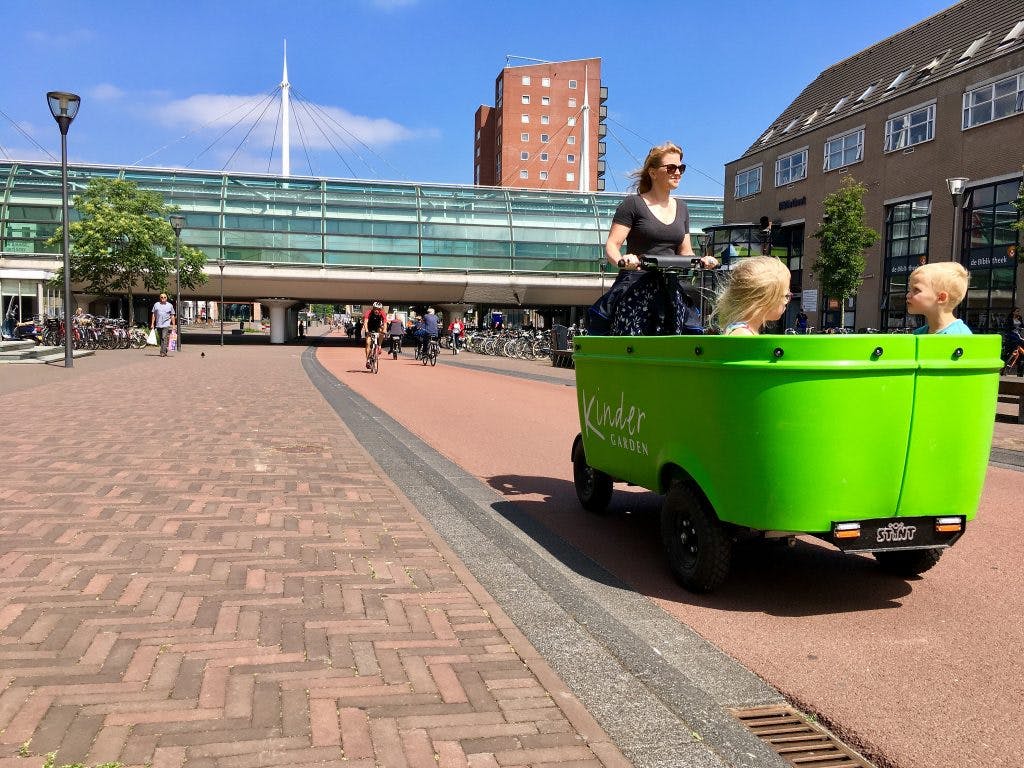
Dutch cities are famous for re-orienting their larger cities around bicycle transportation since the 1970s. What’s somewhat less known is that some of their newer suburban communities have never been auto-oriented.
Instead, they were built with bicycling in mind from day one.
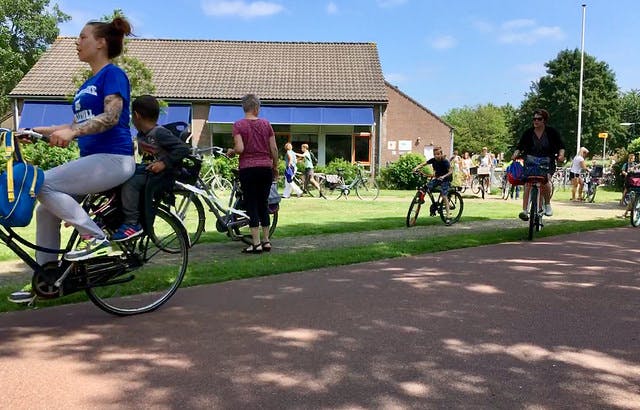
On Tuesday, our delegation biked 30 minutes from Utrecht on a railside path to get a taste of one of this country’s most spectacularly livable suburbs: Houten, population 50,000.
Our first stop: City Hall. We added our bikes to the crowded rack out front and met urban planner Andre Botermans, who showed us the first maps, from the 1970s, of the city that would become modern Houten.
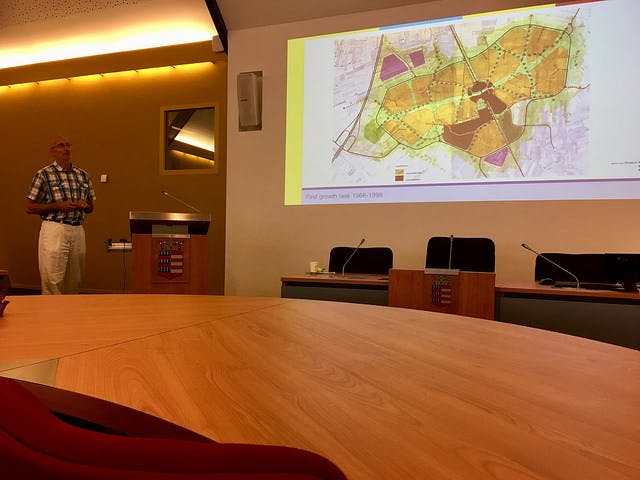
The green stripe through the middle is the main bike thoroughfare; a ring road encircles the residential area but there is no auto route all the way through the middle. This preserves auto access to every property, but makes bikes and foot the best way by far to move within the city.
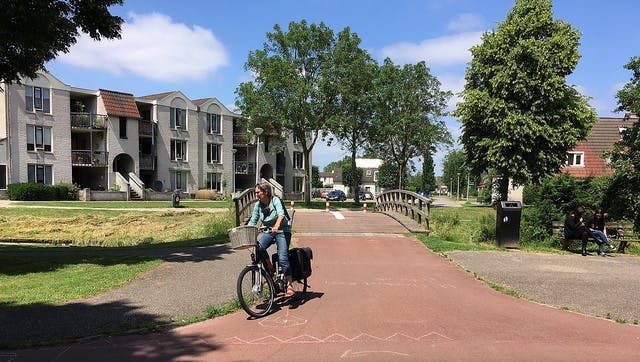
As we biked through the middle of town, the loudest sounds were our conversations and birdsong in the trees that line the main bike path. For us Americans, it was a leap into a forgotten past of safety, peace and quiet in daily life — one that every suburban cul-de-sac is trying to recall, but which turns out to be impossible without the key step of making biking a fast and comfortable alternative to driving for in-town trips.
For a sense of how it feels to spend time in downtown Houten, turn on audio in the video tweet below.
The lack of auto routes through Houten’s city center is also what sets it apart from Stevenage, the similar U.K. city that was built with an eye to biking but tried to have it both ways by building bike paths and auto streets alongside one another. The sad result, as told by British journalist Carlton Reid, is that one of Britain’s best small towns for biking still pushes bikes to its margins, with paths looping behind buildings and beneath overpasses rather than directly to destinations. Biking in Stevenage is comfortable and therefore fairly popular, but because that city refused to truly prioritize the bike, the costs of car use are everywhere.
Not so in Houten. Car ownership remains popular, of course, in part because the city was deliberately planned to include few jobs. But about 40 percent of trips within this community are by bike, Botermans said, and another 20 to 25 percent by foot.
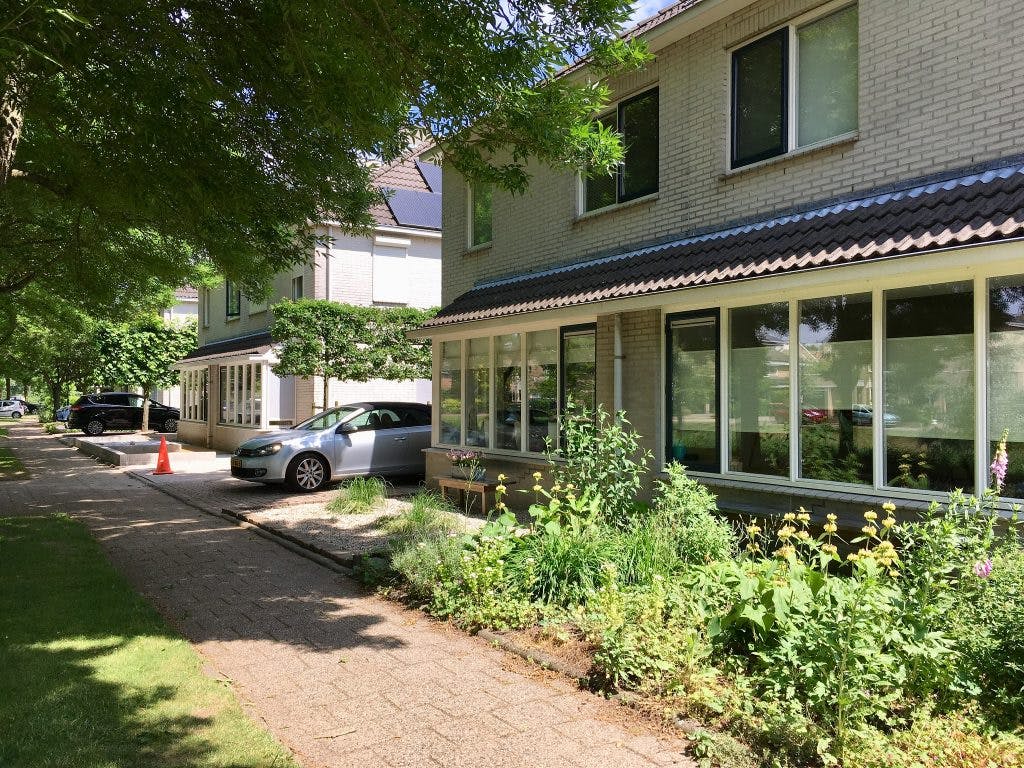
One reason Houten is so bikeable: despite the abundant public green space, it’s built more densely than most U.S. suburbs, with plenty of apartment housing and many duplexes, like the one above.
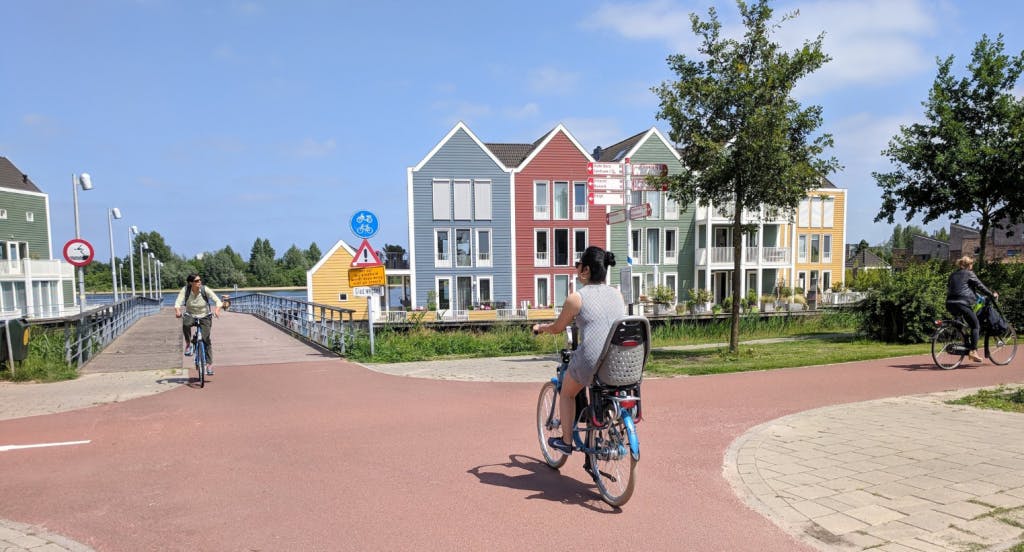
Houten was developed as a master-planned community, with private developers designing buildings to the government’s general specifications about size, count and location. Social housing, offering below-market rents to lower-income households, is scattered through the city, too. A second Houten city staffer who joined us Tuesday said the best way to tell the difference between the homes of richer and poorer people is by how fancy the gardens are, not by the scale of the homes themselves.
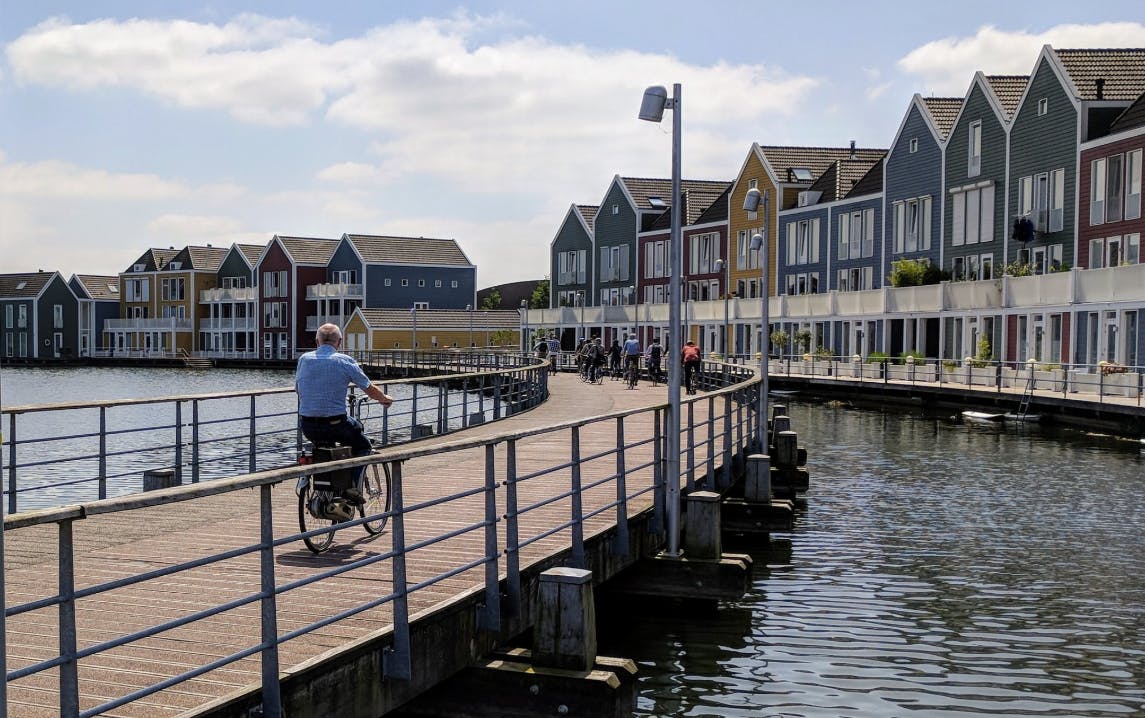
Before we left, our hosts took us to a primary school as it was letting out. Pupils chattered as they pulled their bikes off the racks outside — older children heading home on their own or with a friend, younger children with parents, who’d all shown up by bicycle themselves.
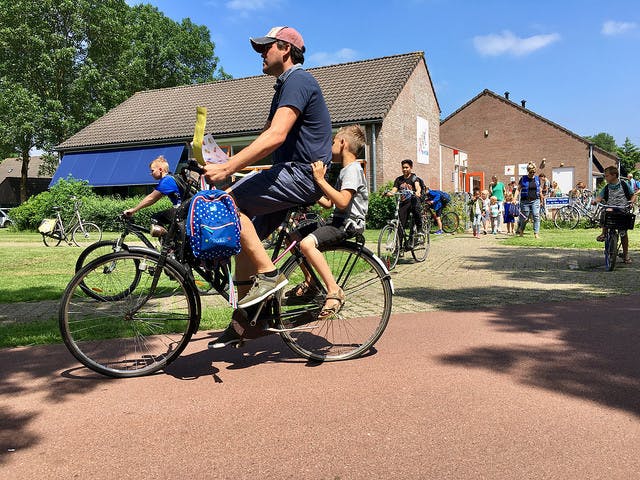
Gary Vernon, a delegate from Bella Vista, Ark, and program officer at the Walton Family Foundation, marveled at the contrast to U.S. schools.
“We would have 78 cars lined up here,” he said.
As the families smoothly dispersed in every direction, Botermans beamed at his guests.
“When you go home, you can say this really happens,” he said. “This was not a dream.”